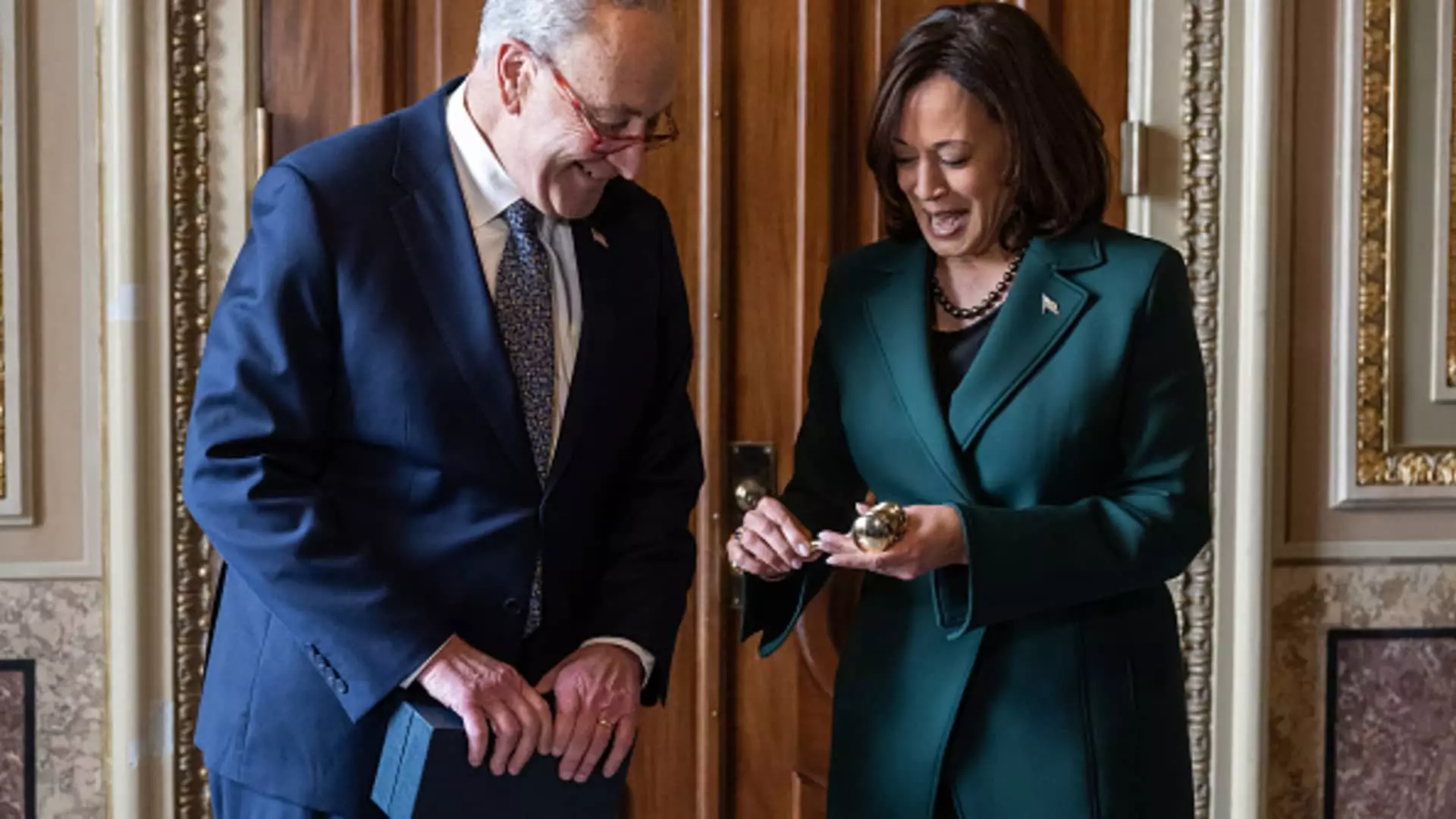Senate Majority Leader Chuck Schumer recently expressed his belief that the Senate can pass a bipartisan crypto regulation bill before the end of the year. This announcement comes as a ray of hope for an industry that has long been waiting for regulatory clarity. Schumer’s remarks were made during a virtual town hall event aimed at supporting the Democratic presidential nominee, Vice President Kamala Harris. The event, dubbed “Crypto4Harris,” featured influential figures such as billionaire Mark Cuban, Senator Kristen Gillibrand, and Senator Debbie Stabenow, among others. Stabenow, who chairs the Senate Agriculture Committee, is overseeing a bipartisan crypto bill that is currently making its way through the committee.
Schumer’s Vision for Crypto Regulation
During the virtual event, Schumer emphasized the importance of passing crypto legislation this year, even in the face of political divisions. He expressed his goal of uniting members from both sides of the aisle in the Senate to create sensible legislation that would ensure the United States remains at the forefront of innovation. Schumer’s unwavering support for crypto was evident in his statement that “Crypto is here to stay,” emphasizing the need for Congress to get the regulation right. His stance on digital currencies has evolved over time, as he previously joined Republicans in overturning regulatory guidelines that were deemed burdensome by the industry. However, his vocal endorsement of the sector on this occasion exceeded expectations on Capitol Hill.
While Harris did not attend the online event, several members of her party reiterated their support for the crypto industry. Senator Gillibrand highlighted the future Harris administration’s commitment to understanding and facilitating a balanced approach to regulating the sector. The upcoming election has heightened the focus on the crypto-friendly stance of political candidates, with more than 70 House Democrats supporting the Financial Innovation and Technology for the 21st Century Act. This legislation, which passed the House in May, is now headed to the Senate for consideration.
The emergence of a token-savvy voting bloc has positioned crypto as a significant issue in the 2024 elections, influencing both presidential and Senate races. Republican nominee Donald Trump has recently aligned with the crypto sector, signaling a shift in his views on digital assets. In contrast, Vice President Harris has remained relatively silent on the topic, prompting speculation about her future stance. Representatives Ro Khanna and Wiley Nickel have engaged with the Harris campaign team to advocate for a comprehensive approach to crypto regulation. The race to appeal to the pro-crypto electorate underscores the industry’s growing influence in electoral outcomes.
The pro crypto super PAC Fairshake has pledged substantial donations to key Senate races, reflecting the sector’s financial investment in political outcomes. BlackRock’s Head of Digital Assets highlighted the increasing bipartisan recognition of crypto as a legitimate and vital issue. The convergence of political strategy and financial backing from the crypto industry underscores the significance of regulatory developments in shaping the future landscape of digital assets.
The momentum towards bipartisan crypto regulation in the Senate signals a significant shift in the political landscape for the industry. With key players expressing optimism and support for clear and balanced regulation, the future of crypto in the United States appears promising. As the debate continues to unfold, industry stakeholders and policymakers must navigate the complex intersection of technology, finance, and governance to ensure a conducive environment for innovation and growth.

Leave a Reply